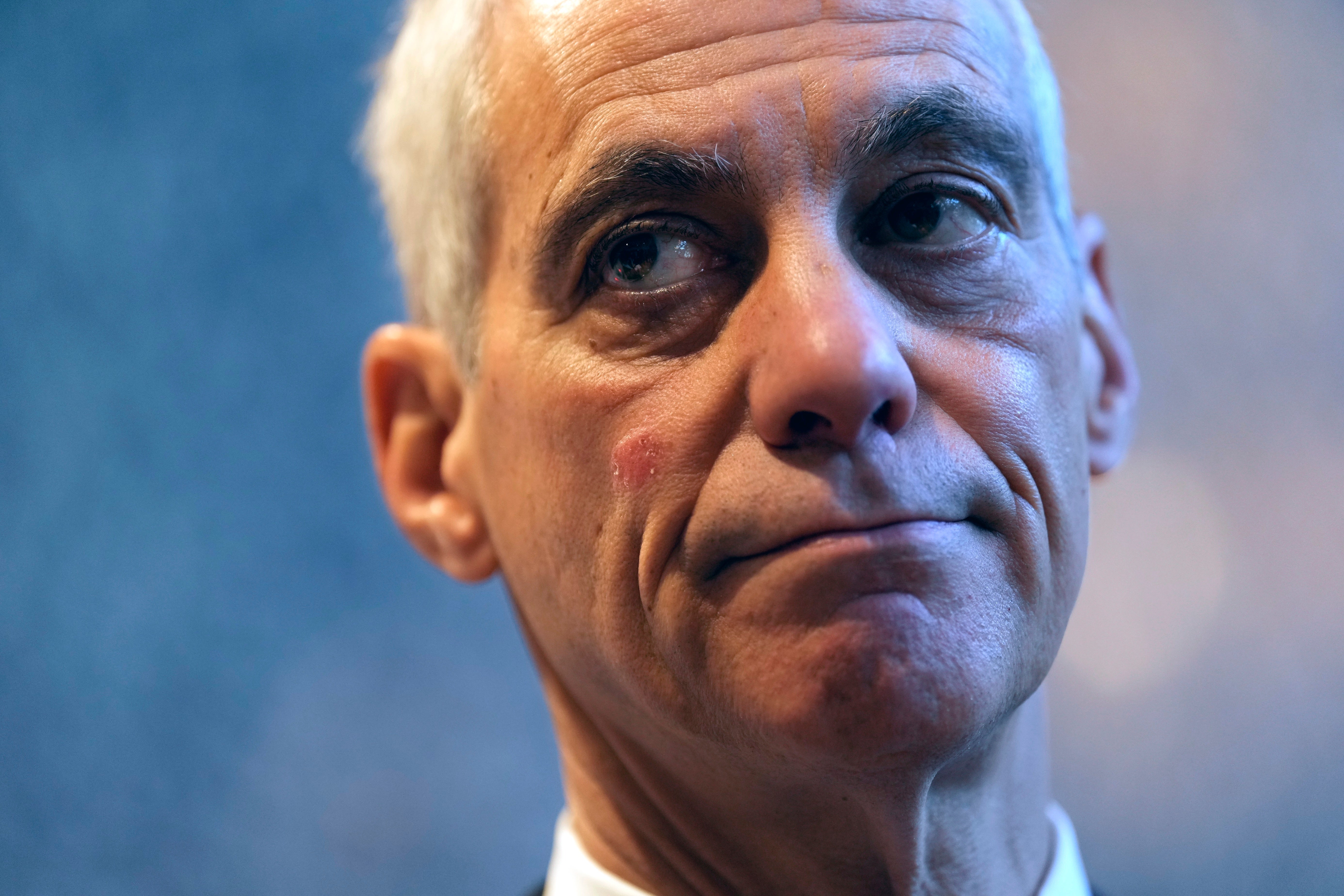US ambassador to skip Japan’s atomic bomb memorial after Israeli delegation was not invited
The U.S. ambassador to Japan has decided to skip this year's atomic bombing memorial service in Nagasaki after Israel was not invited

Your support helps us to tell the story
From reproductive rights to climate change to Big Tech, The Independent is on the ground when the story is developing. Whether it's investigating the financials of Elon Musk's pro-Trump PAC or producing our latest documentary, 'The A Word', which shines a light on the American women fighting for reproductive rights, we know how important it is to parse out the facts from the messaging.
At such a critical moment in US history, we need reporters on the ground. Your donation allows us to keep sending journalists to speak to both sides of the story.
The Independent is trusted by Americans across the entire political spectrum. And unlike many other quality news outlets, we choose not to lock Americans out of our reporting and analysis with paywalls. We believe quality journalism should be available to everyone, paid for by those who can afford it.
Your support makes all the difference.U.S. Ambassador to Japan Rahm Emanuel will skip this year's atomic bombing memorial service in Nagasaki because Israel was not invited, the embassy said Wednesday.
Emanuel - who is Jewish - will not attend the event on Friday because it was “politicized” by Nagasaki's decision not to invite Israel, the embassy said.
He will instead honor the victims of the Nagasaki atomic bombing at a ceremony at a Buddhist temple in Tokyo, it said.
An atomic bomb dropped by the United States on Hiroshima on Aug. 6, 1945, destroyed the city, killing 140,000 people. A second bomb dropped three days later on Nagasaki killed 70,000 more. Japan surrendered on Aug. 15, 1945, ending World War II and the country's nearly half-century of aggression in Asia.
Nagasaki Mayor Shiro Suzuki had indicated his reluctance in June to invite Israel, noting the escalating conflict in the Middle East. He announced last week that Israel was not invited because of concern over “possible unforeseen situations" such as protests, sabotage or attacks on attendants. Nagasaki hoped to honor the atomic bomb victims “in a peaceful and solemn atmosphere,” he said.
Suzuki said he made the decision based on "various developments in the international community in response to the ongoing situation in the Middle East" that suggested a possible risk that the ceremony would be disturbed.
In contrast, Hiroshima invited the Israeli ambassador to Japan to its memorial ceremony on Tuesday among 50,000 attendees who included Emanuel and other envoys, though Palestinian representatives were not invited.
Nagasaki officials said they were told that an official of the U.S. Consulate in Fukuoka will represent the United States at Friday's ceremony. Five other Group of Seven nations — Canada, France, Germany, Italy and the U.K. — and the European Union are also expected to send lower-ranking envoys to Nagasaki.
Envoys from those nations signed a joint letter expressing their shared concern about Israel's exclusion, saying treating the country on the same level as Russia and Belarus — the only other countries not invited — would be misleading.
The envoys urged Nagasaki to reverse the decision and invite Israel to preserve the universal message of the city's ceremony. The exclusion of Israel would make their “high-level participation” difficult, they said.
British Ambassador to Japan Julia Longbottom, who attended the 79th anniversary of the atomic bombing of Hiroshima on Tuesday, told Japanese media that she planned to skip the Nagasaki ceremony because the city's decision to exclude Israel could send a wrong message.